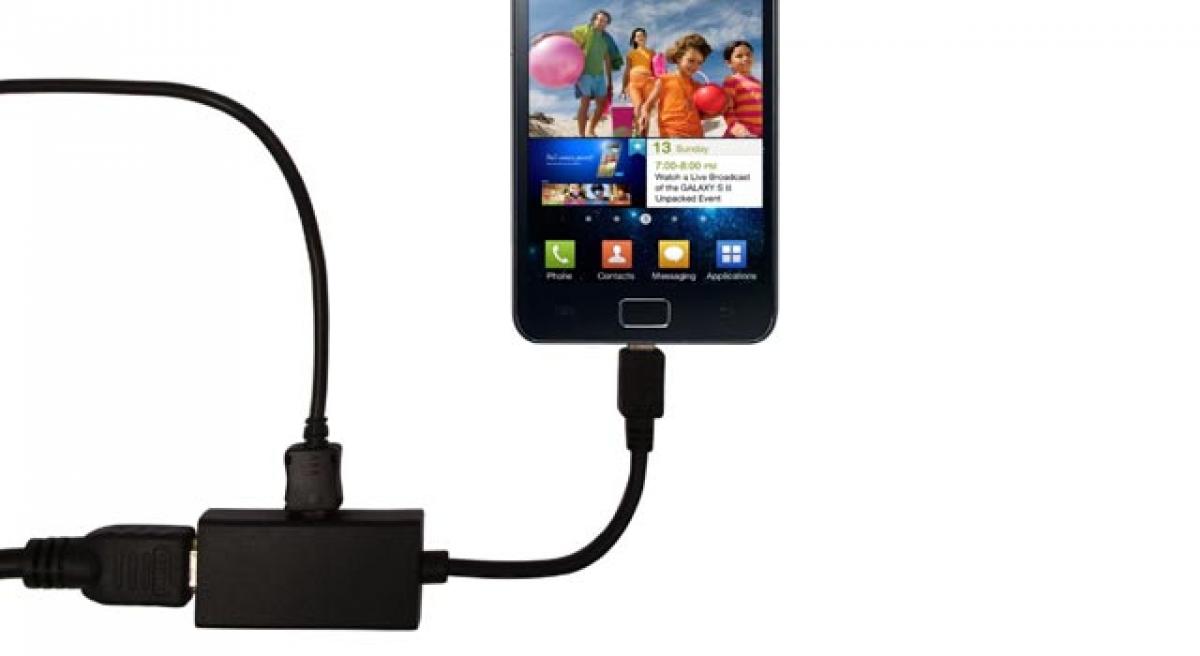Hackers can access smartphones through data cord used for charging

Experts have long known the risks associated with charging a smartphone using a USB cord that can also transfer data, but new research shows that even without data wires, hackers using a \"side channel\" can quickly find out what websites a user has visited while charging a device.
Experts have long known the risks associated with charging a smartphone using a USB cord that can also transfer data, but new research shows that even without data wires, hackers using a "side channel" can quickly find out what websites a user has visited while charging a device.
In a recent paper published in IEEE Transactions on Information Forensics and Security, researchers warn that "a malicious charging station" can use seemingly unrelated data in this case, a device's power consumption to extract sensitive information.
As a walk through any airport will show, most people are happy to plug their phones into public charging stations, putting their phones at risk of "juice-jacking," when a compromised outlet steals data through a USB data cable.
The new research looking at data theft through charging alone was conducted at New York Institute of Technology (NYIT) by Kiran Balagani (assistant professor, NYIT), Aydin Farajidavar (assistant professor, NYIT), Paolo Gasti (assistant professor, NYIT), Qing Yang (Ph.D. student, College of William and Mary), and Gang Zhou (associate professor, College of William and Mary); their work is the first to show that even without a data cable, hackers can analyze a device's power needs to get at users' private information, with speed and accuracy depending on a number of factors.
Gasti said the side-channel attacks were successful because "webpages have a signature that reflects the way they load and consume energy." The remaining power traces act as "signatures" and help hackers discover which sites have been visited.
The researchers conducted the study using power use signatures they had previously identified and tested the attack under various conditions. After collecting power traces via a range of smart phones browsing popular websites, researchers launched attacks and checked the accuracy with which their algorithms could determine which websites were visited while the phones were plugged in.
Various factors such as battery charging level, browser cache enabled/disabled, taps on the screen, and Wi-Fi/LTE influenced the accuracy rate in tracing websites visited; some conditions, such as a fully charged battery, facilitate a fast and accurate penetration, while others, such as tapping the screen while a page is loading, lessen hackers' ability to determine what website is being viewed.
Regardless of the conditions, the important finding emerging from this work is that such an attack can indeed be carried out successfully. And in this study, the slower, less accurate attempts at penetration were still accurate within six seconds about half the time.
Gasti explained the significance of the research, saying, "Although this was an early study of power use signatures, it's very likely that information besides browsing activity can also be stolen via this side channel. Since public USB charging stations are so widely used, people need to be aware that there might be security issues with them. For example, informed users might choose not to browse the web while charging."
















